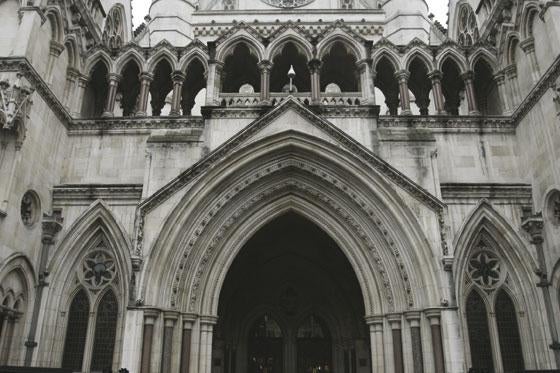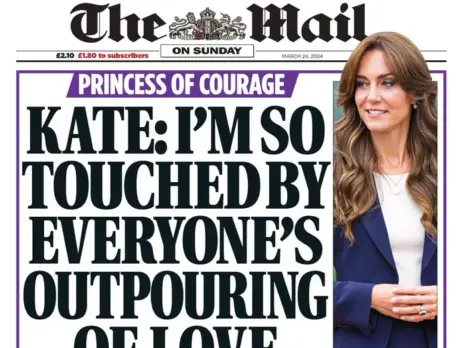
A man who obtained an injunction to stop a newspaper publishing a story about his private life should be identified, a High Court judge ruled on Friday.
But details of the information he had sought to protect would be kept secret, Justice Tugendhat said in a judgment explaining how the order was originally obtained and why he was no longer prepared to allow the claimant to remain anonymous.
The judge ordered that the man’s identity should not be disclosed pending any application to appeal against his ruling, which had to be lodged by November 19.
The man, identified only as JIH, went to court in August after News Group Newspapers published articles about him.
He obtained a temporary injunction at a private hearing before Justice Nicol after his lawyers argued that, unless the order was granted he and others would suffer distress and humiliation.
Justice Nicol granted JIH anonymity on the basis that publicity revealing his identity was likely to damage his interests or frustrate the administration of justice.
JIH and the defendant in the action, News Group Newspapers, publisher of The Sun and the News of the World, returned to court on October 21 with a jointly agreed consent order.
“It was clear (as has since been confirmed) that they expected the Court to make the order without consideration of any other documents,” Justice Tugendhat said.
“But the form of order contained derogations from the principle of open justice. The parties now accept that an order for anonymity and reporting restrictions cannot be made simply because the parties consent: parties cannot waive the rights of the public.”
It was not suggested that there had been any breach of the temporary injunction, the judge said, adding: “The point made is that what is in the public domain is evidence of what is likely to occur if the anonymity and other derogations from open justice are not continued.
“Much of the publicity about this case has been in the form of guesses, or invitations to the public to guess, the identity of the claimant. There have also been similar publications and speculations on the internet.
“Such publications and speculations are not uncommon after the court grants an injunction on the application of an unnamed claimant.”
It was important to bear in mind what privacy injunctions were intended to achieve – one example might be the paternity of a child, or that the applicant was suffering from a particular condition.
Such cases bore comparison to those involving trade or official secrets – if the secret was revealed there was nothing the court could do to undo what had been done.
But, in many privacy cases, the information sought to be protected was not secret in that sense or, even if it was, once the secret was revealed, there was still something to be achieved by an injunction, as Article 8 was about interference with a person’s private and family life.
The judge said that Hugh Tomlinson QC, for JIH, had argued that he should remain anonymous, relying on the fact that NGN had agreed to his retaining his anonymity.
But the judge said he attached little weight to NGN’s agreement, adding:
“The court has not been given (and would not expect to be given) any information as to any agreement or arrangement that may have been made between NGN and the Claimant.
“It is open to the parties to settle litigation such this in consideration of an agreement for the publication of other information, or of other matters entirely unrelated to the subject matter of the action.
“There may be an incentive upon a news publisher to agree that a claimant should enjoy anonymity in consideration of some other benefit the claimant may be able to give to the news publisher.
“It is not to be assumed that news publishers are always concerned to protect the Article 10 rights of the public and their competitors.
“I do not suggest that in this case there has been such a bargain at the expense of the public. I simply decline to attach weight to NGN’s agreement to the form of consent order, in circumstances where there is no evidence as to why it has been agreed in that form.”
The judge said he had no doubt that the private life considerations of Article 8 were engaged in the case, both on the subject matter of the action, and, to a much lesser extent, as to JIH’s identity.
“The proceedings are likely to attract publicity, and if the claimant is identified that will result in some interference with the private life of himself and his family. There is no suggestion of any public interest or other possible justification in disclosure of the information which is the subject matter of the action,” he said
It was implicit in the form of the consent order that in this case it would not be possible to make an order or give a judgment which disclosed any information about the subject matter of the action which did not make it likely that JIH would be identified.
“To identify both the subject matter and the claimant would defeat the purpose of the proceedings,” the judge said.
“Accordingly, the only practical question open to the Court is whether to withhold the identity of the Claimant, in addition to withholding all information about the subject matter of the action.
“The only real choice is to allow the public to know the Claimant’s identity or to allow them to know nothing at all about the action.”
Where the proposed justification for anonymity was that identification would prevent the attainment of justice, the claimant had to satisfy the test of strict necessity.
“The claimant has not shown to that high standard that the object of achieving justice in this case would be rendered doubtful if the anonymity order were not made,” Mr Justice Tugendhat said.
“It is not possible to do perfect justice to all parties and to the public at the same time. In my judgment the proposed order will be effective to achieve justice, and will give all necessary protection the private lives of the claimant and any others concerned, if it identifies the claimant, but gives information about the subject matter only in the Confidential Schedule.
“It will be served on newspaper publishers (as the earlier Orders have been). They will know what they can publish in the future and what they cannot publish.
“Nothing will stop people from speculating in private. And the court cannot stop much of the speculation that takes place on the internet.
“But an Order will limit the extent to which the private lives of the claimant and others are interfered with notwithstanding that it identifies the Claimant.
“So the general principle of open justice provides, in this case, sufficient general, public interest in publishing a report of proceedings which identifies the claimant to justify any resulting curtailment of the rights of the claimant and his family to respect for their private and family life.”
Email pged@pressgazette.co.uk to point out mistakes, provide story tips or send in a letter for publication on our "Letters Page" blog







